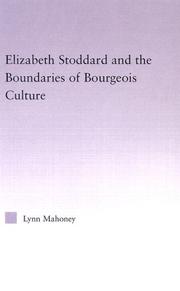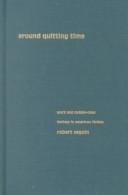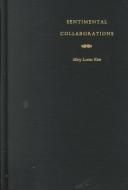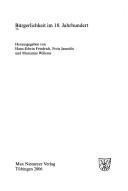Book
ISBN: 019281060X 9780192810601 Year: 1969 Volume: 175 Publisher: London Oxford university
Abstract | Keywords | Export | Availability | Bookmark
 Loading...
Loading...Choose an application
- Reference Manager
- EndNote
- RefWorks (Direct export to RefWorks)
English fiction --- Romanticism --- Middle classes in literature. --- Art and literature --- Roman anglais --- Art et littérature --- History and criticism --- England. --- Histoire et critique --- Middle class in literature --- History --- 820-31 --- -English fiction --- -Middle class in literature --- Middle classes in literature --- English literature --- Literature and art --- Literature and painting --- Literature and sculpture --- Painting and literature --- Sculpture and literature --- Aesthetics --- Literature --- Engelse literatuur: novel; roman --- -History and criticism --- 820-31 Engelse literatuur: novel; roman --- Middle class in literature. --- Art et littérature --- English fiction - 19th century - History and criticism --- Art and literature - Great Britain - History - 19th century
Book
ISBN: 0773430172 9780773430174 9780773437395 0773437398 Year: 2010 Publisher: Lewiston Edwin Mellen Press
Abstract | Keywords | Export | Availability | Bookmark
 Loading...
Loading...Choose an application
- Reference Manager
- EndNote
- RefWorks (Direct export to RefWorks)
This book builds on the large volume of existing literature that details the social, moral and economic context in which women of this era operated. It further complements the smaller body of existing writing that probes the interior lives of women. However, where as these latter works use personal documents, such as diaries and letters, to gain insight into the interior lives of mainly upper middle- and upper-class women, this study concentrates on women from the lower and middle levels of the middle classes and on those from the upper rungs of the lower classes.
Women and literature --- Middle class in literature --- English --- Languages & Literatures --- English Literature --- Middle classes in literature --- History --- Bennett, Arnold, --- Corelli, Marie, --- Criticism and interpretation. --- Corelli, Maria, --- Karēlī, Mērī, --- Mackay, Mary, --- Mǣrī Khō̜renli, --- Bennett, Enoch Arnold, --- Bennett, E. A. --- Bennett, Arnold
Book
ISBN: 0813933420 9780813933429 9780813933412 0813933412 1283960206 Year: 2013 Publisher: Charlottesville : University of Virginia Press,
Abstract | Keywords | Export | Availability | Bookmark
 Loading...
Loading...Choose an application
- Reference Manager
- EndNote
- RefWorks (Direct export to RefWorks)
Thus, the late eighteenth century proves to be a watershed moment in home's conceptual life, one that produced a remarkably rich and complex set of cultural ideas and images. A 2014 CHOICE Outstanding Academic Title.
Literature and society --- English literature --- Poverty --- Social structure --- Nationalism in literature. --- Middle class in literature. --- English fiction --- Home in literature. --- Literature --- Literature and sociology --- Society and literature --- Sociology and literature --- Sociolinguistics --- Destitution --- Wealth --- Basic needs --- Begging --- Poor --- Subsistence economy --- Organization, Social --- Social organization --- Anthropology --- Sociology --- Social institutions --- Middle classes in literature --- History --- Scottish authors --- History and criticism. --- Government policy --- Social aspects

ISBN: 1135883416 1135883424 1280050470 0203484053 9780203484050 0415968348 9781135883379 9781135883416 9781135883423 9780415968348 0203605721 Year: 2004 Publisher: New York : Routledge,
Abstract | Keywords | Export | Availability | Bookmark
 Loading...
Loading...Choose an application
- Reference Manager
- EndNote
- RefWorks (Direct export to RefWorks)
First published in 2004. Routledge is an imprint of Taylor & Francis, an informa company.
Literature and society --- Women and literature --- Social classes --- Middle class in literature. --- Sex role in literature. --- Middle classes in literature --- Class distinction --- Classes, Social --- Rank --- Caste --- Estates (Social orders) --- Social status --- Class consciousness --- Classism --- Social stratification --- History --- Stoddard, Elizabeth, --- Stoddard, Elizabeth Drew (Barstow), --- Barstow, Elizabeth Drew, --- Criticism and interpretation. --- New England --- Intellectual life
Book
ISBN: 178744676X 1640140646 Year: 2020 Publisher: Rochester, NY : Camden House,
Abstract | Keywords | Export | Availability | Bookmark
 Loading...
Loading...Choose an application
- Reference Manager
- EndNote
- RefWorks (Direct export to RefWorks)
Analyzes the transformation of German-language pastoral from a portrayal of the idyllic lives of herdsmen into a vehicle for the concerns and aspirations of the middle class.
German literature --- Pastoral literature, German --- Middle class in literature. --- Country life in literature. --- Middle classes in literature --- Young Germany --- German pastoral literature --- History and criticism. --- German authors. --- German culture. --- German-language writing. --- creative middle class. --- cultural transformation. --- literary analysis. --- literary themes. --- literary transformation. --- literature and society. --- middle class. --- pastoral literature. --- pastoral transformation. --- societal aspirations. --- societal changes. --- societal values.

ISBN: 1282903675 9786612903670 0822380811 0822326752 0822326701 Year: 2001 Publisher: Durham [N.C.] : Duke University Press,
Abstract | Keywords | Export | Availability | Bookmark
 Loading...
Loading...Choose an application
- Reference Manager
- EndNote
- RefWorks (Direct export to RefWorks)
Posits social class as the American political unconscious, showing (in an analysis of 19th and 20th century novels) how class exerts pressure on the American cultural imagination, and claiming that what is desired is ultimately the liberation from work.
American fiction --- Middle class in literature. --- Literature and society --- Class consciousness in literature. --- Working class in literature. --- Social change in literature. --- Fantasy in literature. --- Work in literature. --- Labor and laboring classes in literature --- Middle classes in literature --- History and criticism. --- History

ISBN: 0822398001 0822324350 1322112525 0822324717 Year: 2000 Publisher: Durham : Duke University Press,
Abstract | Keywords | Export | Availability | Bookmark
 Loading...
Loading...Choose an application
- Reference Manager
- EndNote
- RefWorks (Direct export to RefWorks)
During the 1992 Democratic Convention and again while delivering Harvard University’s commencement address two years later, Vice President Al Gore shared with his audience a story that showed the effect of sentiment in his life. In telling how an accident involving his son had provided him with a revelation concerning the compassion of others, Gore effectively reconstructed himself as a typical, middle-class American for whom sympathy can lead to salvation. This contemporary reiteration of mid-nineteenth-century American sentimental discourse proves to be a fruitful point of departure for Mary Louise Kete’s argument that sentimentality has been an important and recurring form of cultural narrative that has helped to shape middle-class American life.Many scholars have written about the sentimental novel as a primarily female genre and have stressed its negative ideological aspects. Kete finds that in fact many men—from writers to politicians—participated in nineteenth-century sentimental culture. Importantly, she also recovers the utopian dimension of the phenomenon, arguing that literary sentimentality, specifically in the form of poetry, is the written trace of a broad cultural discourse that Kete calls “sentimental collaboration”—an exchange of sympathy in the form of gifts that establishes common cultural or intellectual ground. Kete reads the work of Ralph Waldo Emerson, Henry Wadsworth Longfellow, Mark Twain, Harriet Beecher Stowe, and Lydia Huntley Sigourney with an eye toward the deployment of sentimentality for the creation of Americanism, as well as for political and abolitionist ends. Finally, she locates the origins of sentimental collaboration in the activities of ordinary people who participated in mourning rituals—writing poetry, condolence letters, or epitaphs—to ease their personal grief.Sentimental Collaborations significantly advances prevailing scholarship on Romanticism, antebellum culture, and the formation of the American middle class. It will be of interest to scholars of American studies, American literature, cultural studies, and women’s studies.
American literature --- Mourning customs in literature. --- Mourning customs --- Middle class --- Sentimentalism in literature. --- Group identity in literature. --- Middle class in literature. --- Middle classes in literature --- Bourgeoisie --- Commons (Social order) --- Middle classes --- Social classes --- Manners and customs --- Rites and ceremonies --- Funeral rites and ceremonies --- History and criticism. --- History --- Social conditions
Book
ISBN: 9053330623 9789053330623 Year: 1991 Volume: 4 Publisher: Amsterdam : Prometheus,
Abstract | Keywords | Export | Availability | Bookmark
 Loading...
Loading...Choose an application
- Reference Manager
- EndNote
- RefWorks (Direct export to RefWorks)
Dutch literature --- anno 500-1499 --- Civilization, Medieval, in literature. --- City and town life in literature. --- Middle class in literature. --- History and criticism. --- City and town life in literature --- Civilization, Medieval, in literature --- Middle class in literature --- 091 =393 --- 839.3 "04/14" --- Middle classes in literature --- 091 =393 Handschriftenkunde. Handschriftencatalogi--Nederlands --- Handschriftenkunde. Handschriftencatalogi--Nederlands --- 839.3 "04/14" Nederlandse literatuur--Middeleeuwen --- Nederlandse literatuur--Middeleeuwen --- History and criticism --- To 1500 --- Addresses, essays, lectures --- Dutch literature - To 1500 - History and criticism.

ISSN: 01744410 ISBN: 3484351055 9783484351059 3110922371 Year: 2012 Volume: 105 Publisher: Tübingen : Max Niemeyer Verlag,
Abstract | Keywords | Export | Availability | Bookmark
 Loading...
Loading...Choose an application
- Reference Manager
- EndNote
- RefWorks (Direct export to RefWorks)
Bürgerlichkeit and Bürger are central concepts in (German) literary history. The emancipation of the Bürgertum (bourgeoisie/middle classes) in the modern age has in fact been identified as the prime source of the profound cultural and socio-structural changes taking place in the 18th century. However, close scrutiny of the historical circumstances has split up the apparently close-knit concept of the Bürger into a diversity of semantic and socio-structural components that appear to be anything but unified. Accordingly, traditional models operative in literary history and sociology need to be thoroughly reviewed and revised. Bürgerlichkeit und Bürger sind zentrale Konzepte der Literaturgeschichte. Die tiefgreifenden kulturellen und sozialstrukturellen Veränderungen des 18. Jahrhunderts sind auf die Emanzipation des neuzeitlichen Bürgertums zurückgeführt worden. Die Untersuchung der historischen Verhältnisse hat jedoch den so kompakt scheinenden Begriff des Bürgers in eine semantische wie sozialstrukturelle Vielfalt aufgelöst, deren Einheit mehr denn je fraglich ist. Die gängigen literarhistorischen und soziologischen Modelle bedürfen daher einer grundlegenden Revision.
German literature --- Middle class --- Middle class in literature --- History and criticism --- History --- Literature, Modern --- 82.04 --- 830 "17" --- Literaire thema's --- Duitse literatuur--18e eeuw. Periode 1700-1799 --- 82.04 Literaire thema's --- 830 "17" Duitse literatuur--18e eeuw. Periode 1700-1799 --- Middle classes in literature --- Modern literature --- Arts, Modern --- German literature - History and criticism - 18th century - Congresses --- Middle class - History - 18th century - Congresses --- Middle class in literature - Congresses

ISBN: 0801855888 9780801855887 0801872537 9780801872532 Year: 1997 Publisher: Baltimore, Md. Johns Hopkins University Press
Abstract | Keywords | Export | Availability | Bookmark
 Loading...
Loading...Choose an application
- Reference Manager
- EndNote
- RefWorks (Direct export to RefWorks)
In 'Market la Mode', Erin Mackie examines the role that 'The Tatler' and 'The Spectator', two eighteenth-century British lifestyle magazines, played in the growth of fashion and how they influenced their readers. She traces the commercial context in which they operated, focusing on the processes of commodification, fetishization, and revisions of gender identity. Mackie's study makes clear that fashion publications, far from being commentaries on passing trends, assumed a leading role in defining women's legitimate sphere of activities as well as in the development of commerce as recreation.
CDL --- 391 --- Aesthetics, British --- Commercial products in literature. --- English essays --- English periodicals --- Ethics, Modern --- Fashion in literature. --- Fashion --- Literature and society --- Middle class in literature. --- Sex role in literature. --- History and criticism. --- History --- Tatler (London, England : 1709) --- Spectator (London, England : 1711) --- England --- Social life and customs --- Tatler (London, England : 1709). --- Spectator (London, England : 1711). --- Commercial products in literature --- Fashion in literature --- Middle class in literature --- Sex role in literature --- Middle classes in literature --- Style in dress --- Clothing and dress --- History and criticism --- Spektator

 Search
Search Feedback
Feedback About UniCat
About UniCat  Help
Help News
News